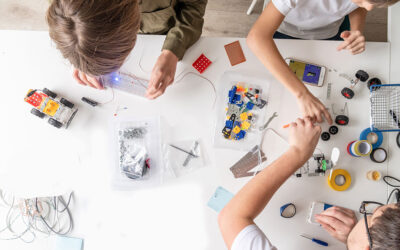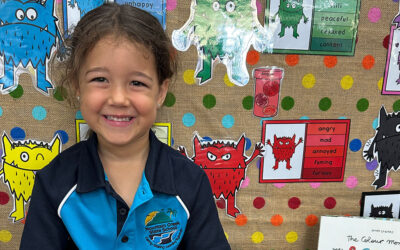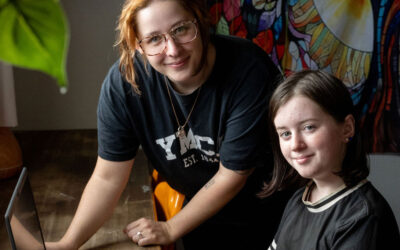“The question to be asked is not: what does an individual need to know and be capable of doing so as to fit into the existing social order? But rather: what potential does an individual have and what can be developed in them?” — Rudolf Steiner, Founder of Steiner Education, 1920
Since Rudolf Steiner penned those sage words 100 years ago, Steiner Education has been embraced across the globe.
It is a life-changing education pathway for many of those who experience it.
Mark Piper, High School Coordinator at Noosa Pengari Steiner School (NPSS) reveals more about this humanistic approach to learning and how it might bring about change in the world.
Steiner is so relevant to students today
The first Steiner Waldorf school opened in 1919 in Stuttgart, Germany. Yet modern pedagogical thinking is only now beginning to look at it and see its value for the 21st century. According to Mark Piper, education is no longer simply talking to a group of students for a term, then giving them a test that could decide a future path.
“We [NPSS] don’t only educate the intellect, we also educate feeling, life and the will,” he says.
“Through the Steiner learning approach, we create experiences for the children rather than pursue conceptual knowledge,” Mr Piper says.
He highlights much of today’s knowledge can be simply ‘Googled’.
“For example, instead of studying trigonometry from a textbook, our Class 10 students recently travelled to Tasmania to join Tarremah Steiner School for a combined Surveying Camp. Students worked together with precision equipment, surveying and creating maps of the land they stood on. They did this while enjoying outdoor pursuits and cultural activities with new friends. This experience brought theoretical knowledge that arises from a deeper practical understanding.”
He says the Steiner approach brings experience before theory and abstract ideas (such as maths equations) are introduced.
“We nurture the students as children while they’re still children,” Mr Piper says. “There isn’t a push to make them grow up too quickly; there isn’t a push to fill them with knowledge, to sit exams or assess that knowledge.”
He says the school believes the process of ‘you’ve learned this and now we’re going to test you on it’ has less importance for a young person than their ability to develop confidence and an ethical understanding. It develops a feeling that they can contribute positively to the world.
Related Reads
Sunshine Coast 8yo among Australia’s youngest published authors
5 Family friendly natural attractions on the Sunshine Coast
10 Ways to get more nature into your child’s day
The NPSS follows the Australian Curriculum
Noosa Pengari Steiner School takes students through their entire education journey, from early learning to Year 12. It is aligned with the Australian Curriculum.
“We run a very specific curriculum filled with academic rigour,” Mr Piper says. “Yet it is also about supporting the children to achieve in the areas that they have an interest in.
“The lessons and the classes are fixed. However, the framework allows teachers to look at the group and create an assessment task that suits the students, yet also carries value.”
He says one example involves students being assessed on their ability to perform a particular skill in physical education, such as throwing a ball.
“The group’s learning outcome was to ‘demonstrate capacity in a movement discipline’. One child did dance, another did horse riding, a third did surfing,” Mr Piper says.
“Students are provided with frameworks to say how they’re going to be marked. But the discipline through which they deliver that, they can choose themselves.”
Understanding the CSE and how students can continue their studies
The CSE is NPSS’s externally accredited assessment framework. It’s called the New Zealand Certificate of Steiner Education.
“It is a modern way of assessing the children and seeing the capacities they can show without the pressure of single points of failure—it’s not all down to an exam” Mark Piper says.
“It carries the equivalent of a Queensland Certificate of Education, and therefore is an accepted pathway to tertiary study. Also, it is a recognised alternative to mainstream high school education.”
How Steiner Education is helping make the world a better place
NPSS wants its students to be informed, discerning and open-minded so they can create social change.
“We help them create the world that they want, rather than treating them as a resource to be ‘used’ by the world,” Mr Piper says.
More than ever, the world needs creative, courageous, discerning, ethical individuals. Steiner schools consciously strive to educate children, adolescents, teachers, and parents to be agents of change.
“We are creating capacity for social change through nurturing the desire for young people to want to give rather than to take,” Mr Piper says.
Yes, the world can be a better place!


